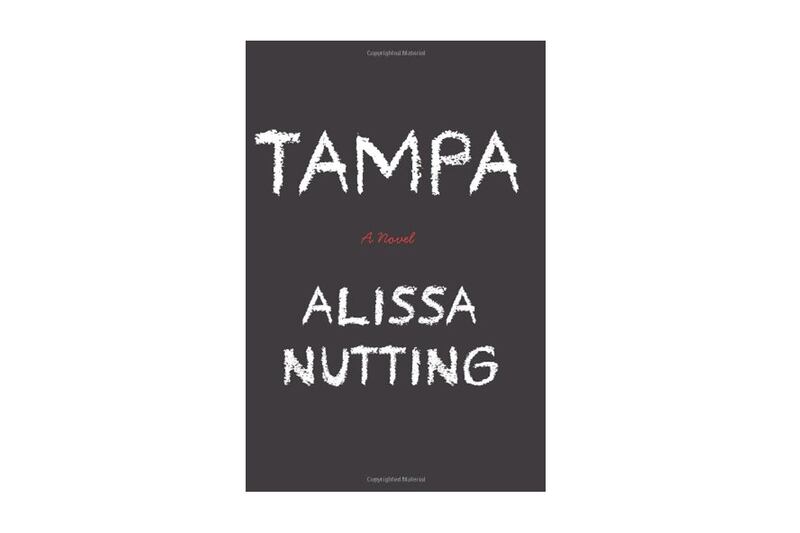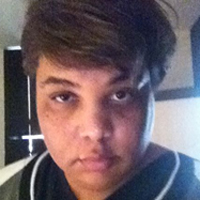Alissa Nutting’s debut novel, Tampa, will give people something to talk about this summer and beyond. Though the novel’s subject matter is controversial, Tampa is also impeccably written, full of smart cultural observations, and no small amount of wit. Tampa is far bigger than the buzz, and more significant than the catchwords that will inevitably be attached to it.

Celeste Price is a sexy, attractive 26-year-old eighth-grade teacher with a perfect body, married to a wealthy man who adores her. She drives a little red Corvette. She is living the dream, though there is a catch—she is a remorseless pedophile, intensely, obsessively attracted to 14-year-old boys. Celeste uses her classroom as her hunting ground, and in short order seduces young Jack Patrick, one of her students, using her intelligence and physical assets to keep him under her control. Her desires, though, offer diminishing returns because 14 doesn’t last forever and neither does 26.
This is a novel about sexual deviance, relentlessness, and desire. It is compelling and disturbing, much like Lolita. Wrongs are committed, and flagrantly, but Nutting commits to her premise without wavering and demands the reader do so, too. Over the past few weeks, I spoke with Nutting about her novel, what it means to transgress in literature, and how to walk the line between explicitness and vulgarity.
Are you nervous about this book in wide release or am I projecting?
Yes … realizing I’m running low on dish soap is enough to give me a panic attack, so you can imagine what the publication of my explicit novel about a taboo-breaking sexual psychopath does to my heart rate. It’s inevitable that the book will be misunderstood by many, and I know that will be hard. Writing transgressive literature opens you up to a double layer of criticism, because people are scrutinizing the subject matter as well as the actual writing. The target area for criticism becomes twice as large.
How do you define transgressive literature?
It’s literature that protagonizes the unaccepted, whether through character or form or style.
I love the explicitness, particularly from a woman. When she uses her own vaginal juices to mark her classroom, I knew this novel was going to be great. How did you come up with the idea for Tampa, and how did you commit to the explicitness?
This type of story is so often fetishized in the popular media, and that got me thinking about the lack of novels whose protagonists are female predators, particularly sexual predators. There’s a void there, and it’s a conversation I felt compelled to start. I committed to the explicitness before I even began writing the book—in my mind, there was never a question of whether or not it was essential. If I was going to portray a dangerous character, I had to invest the text with the full amount of that danger or it wouldn’t be a just representation. To be successful, I knew that the book had to make readers feel exceptionally uncomfortable. Otherwise I’d be whitewashing the topic.
Where do you see the line between explicitness and vulgarity? Do you like crossing that line?
These are really important terms in my mind. Sometimes I wonder if I actually believe in vulgarity, as a concept. Or I suppose I might believe in it too much—perhaps I have an exclusive belief in it! It seems to draw a divisive line between highbrow and lowbrow culture in a way that the term “explicitness” doesn’t. Explicitness and vulgarity are both different subsets of honesty, both very necessary. In my own definition explicitness is more technical, vulgarity more creative, but both reveal something that mainstream culture likes to keep concealed. I don’t think art can thrive in the absence of either one.
We rarely see fiction about women as sexual predators, in large part because we are faced with this dominant cultural narrative about dirty old men and their lecherous intentions toward teenage girls. Did you try to upend this narrative as you wrote Tampa?
Absolutely. I’d actually go so far as to say our culture has a really hard time casting females as sexual predators of male victims, even when the male is underage. If a 13-, 14-year-old boy sleeps with an adult female, there can be this narrative surrounding the act of it being a positive learning experience for him. That sort of attitude would never be applied toward a 13- or 14-year-old girl. Researching cases of female teachers who slept with male students, I was struck by how often there was even a construction of the female teacher as the victim—that the student pushed her into it, or instigated it, and she was somehow helpless against his advances, or vulnerable to them in a way that excuses her behavior. We have a really hard time breaking out of the male/aggressor female/victim mindset as a society. This book challenges that stereotype.
I felt a real empathy for Celeste. Reading of her exploits was horrifying and compelling, and still, I couldn’t help but feel sorry for her and the futility of her desires. Where did this character come from and how did you get into her mind and body? Do you empathize with Celeste?
I wanted to meet a dangerous subject head-on with a dangerous character. Part of what makes Celeste so dangerous are the moments where you almost want to like her—where she makes you laugh, or where she addresses some aspect of being a woman in our culture that’s easy to relate to or sympathize with, like how women are asked to constantly police their appearance and given the impossible task of maintaining a youthful appearance as we age. We’re trained to root for the protagonist in a novel, and when we find that urge working against us or applied to a character’s sinister actions, it’s a challenging feeling. As a character, Celeste could’ve been far more sympathetic—she could feel guilt about what she’s doing, or show concern for her victims. But then she’d lose a lot of her satirical power. The essence of Celeste is that she’s a taboo and remorseless libido in high heels; the wizard behind the curtain with more humanity is the reader, not Celeste.
There is a sadness at the end of the novel when Celeste reflects, “For now, my youth and looks make this easy. I try not to think about the cold years ahead, when time will slowly poach my youth and my body will begin its untoward changes. I’ll have to pare down to certain types: the motherless boys, or those so sexually ravenous they don’t mind my used condition.” Even though the reason Celeste has this lamentation is repugnant, there’s a lot more going on here. We live in a culture where youth and beauty are valuable currencies. Celeste is, as you note, vigilant about her appearance to remain attractive to young boys but most women share in her vigilance for one reason or another. I’m not sure I have a question here, but I marvel at how this novel resides in such a specific location and still speaks to so much more.
It’s an important aspect of this novel. Celeste is a female monster native to our current society. She’s able to get away with having horrific actions and internal values because she’s so good at excelling at the external values of youth and beauty that our culture champions for women. She worries far more about wrinkles than she does about going to jail, and for good reason: despite her actions, wrinkles are a bigger, truer threat to her than jail is.
The comparisons to Nabokov will be inevitable. Did you draw inspiration from Lolita? What else informed your writing of Tampa?
What I learned from Lolita is that it helps to make morally repugnant characters funny. Works of satire were very important to me as well—I’d actually say that narcissistic Emma Rouault in Madame Bovary was a big inspiration in some ways. I also tried to examine and home in on the more charming facets of some of Edgar Allan Poe’s witty criminal characters from his great short stories—characters doing awful things I couldn’t stop reading about, basically. And of course I researched a lot of real-life cases where female teachers were charged with statutory rape or other illegal sexual acts committed upon underage male students.
How did you settle on the title of this novel?
I felt like it nicely represented the dualism of her character. With the text being so overtly sexual and boisterous on the inside, it seemed appropriate to title the book something ambiguously general—it mirrors the way Celeste represents herself as a harmless beauty with mass appeal when she’s actually a complete monster.
Literary people are always looking for the “plug” and I’ve seen many a mention to your book as the most controversial book of the summer. That’s sexy and all, and will definitely get more readers in front of the book. Is Tampa controversial? How do you feel about the way the book is being framed? What the hell does it mean for a book to be controversial, anyway?
I don’t mind that title, particularly since there are a lot of snappy marketing headlines this novel is definitely not eligible for, like “Feel-Good Book of the Summer!” I don’t know if my view of controversy is perhaps a little warmer and most positive than most or not; maybe it’s too simplistic. I tend to think of it as anything that fosters debate, and to me debate is very healthy—controversy kind of requires the sunlight of democracy in order to grow, right?
I read your essay in The New York Times about going off of anxiety meds while you were pregnant. And though you used humor, there was a lot of vulnerability there. I actually see a lot of vulnerability in your fiction, both long and short. What does it take for you to make yourself vulnerable as a writer? How, if at all, do you put yourself into your fiction?
I’ve always been drawn to unfiltered characters in literature—it’s such an interesting, privileged space to me to be able to get inside another person’s head and see what they hide from others and what they show. Society as we know it is built upon repression and understanding what to conceal in any given situation. What you can’t say to your boss is different than what you can’t say to your grandma, which is different than what you can’t say to your best friend, etc. But in literature that veil can be lifted completely—you hear what a character says to her boss, and you also read what she’s actually thinking. That breakdown of dualism, that honesty, is so important and revelatory. When I write nonfiction I demand the same thing of myself as I do of my characters—I confess what’s usually left unsaid in order to show a deeper, more intimate picture. To be more true and less composed.
Let’s talk about the velour cover. Did you just die when you saw and felt it?
I did. I feel like it’s a little necessary. It’s a security blanket. When the book gets too scary, you can close it and pet the cover until you’re brave enough to open it and start reading again.
What do you like most about your writing?
The humor. Tragedy would be incomplete without irony, in my view. I always include it.






